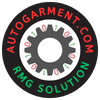Micropipette Adjustable
Read more about Burette Metal Pipette Spot Lamp Test Method
| Voloume Range | Testing Volume | Accuracy | Repeatability | Increament | Tips Volume | No. of Tips |
| 10 | +/-1.0% | +/- 0.8 % | ||||
| 5 | +/- 1.5% | +1- 1.0% | ||||
| 0.5-10 pl | 1 | +/- 2.0 % | +1- 1.5 % | 0.1 pl | 10 pl | 1000 |
| 100 | +/- 0.5 % | +/- 0.2 % | ||||
| 50 | +/- 1.0% | +/- 0.5% | ||||
| 10-100 RI | 10 | +/- 2.0 % | +/- 1.0 % | 1 pl | 100 pl | 1000 |
| 1000 | +/- 0.6% | +/- 0.2 % | ||||
| 500 | +/- 7.0% | +/- 0.25% | ||||
| 100-1000 RI | 100 | +/- 13% | +/- 0.7 % | 5 pl | 1000 pl | 1000 |
| Tips Provid id | 1000 |
Compliance
This option supports you in getting an overview of the energy use in your company.
Energy consumption is one of the largest cost-drivers in textile processing and a major source of environmental pollution. Collecting and generating data about energy consumption are thus key steps to improve the efficiency in textile processing. The reasoning behind it is quite simple: “if you don’t measure it, you can’t manage it”. Using the generated data will help you to draw a trend line of your performance over different time-periods (benchmark), to identify improvement options and to set targets. With a benchmarking process you can compare your performance internally as well as externally, with industry averages or competitors.
In order to determine the consumption of energy (including electricity, fuel, steam and other energy carriers) you can use the following table. Please determine the processes where the largest amount of energy is used. State the energy carrier and the total amount used. Check the section Further Information for conversion table of energy units in Mega Joules (MJ).
Conclusion
If Micropipette available, use data from the last fiscal year or the last quarter and state the chosen time-period in the table. Otherwise collect the necessary information. Also, try to fill out the total energy use, which should not simply add the rows above, but summarise the energy consumption of all processes.

Trackbacks/Pingbacks